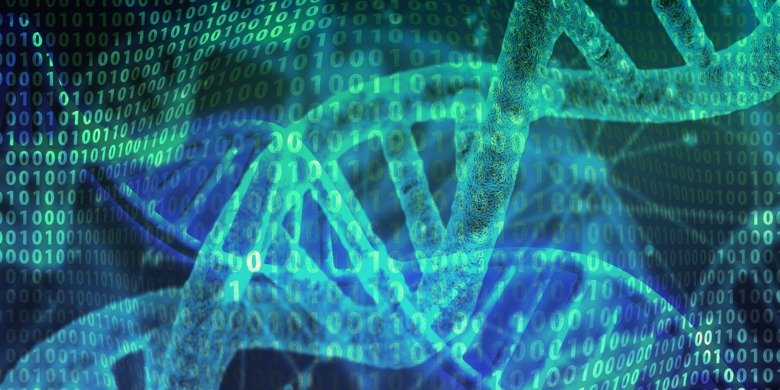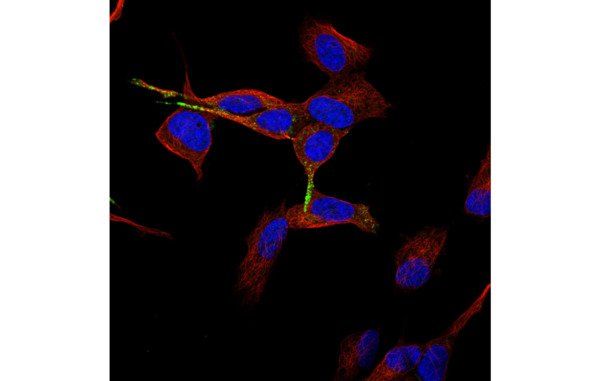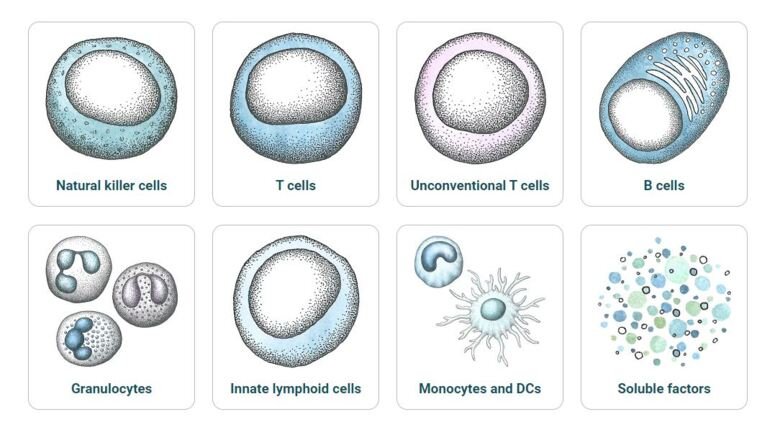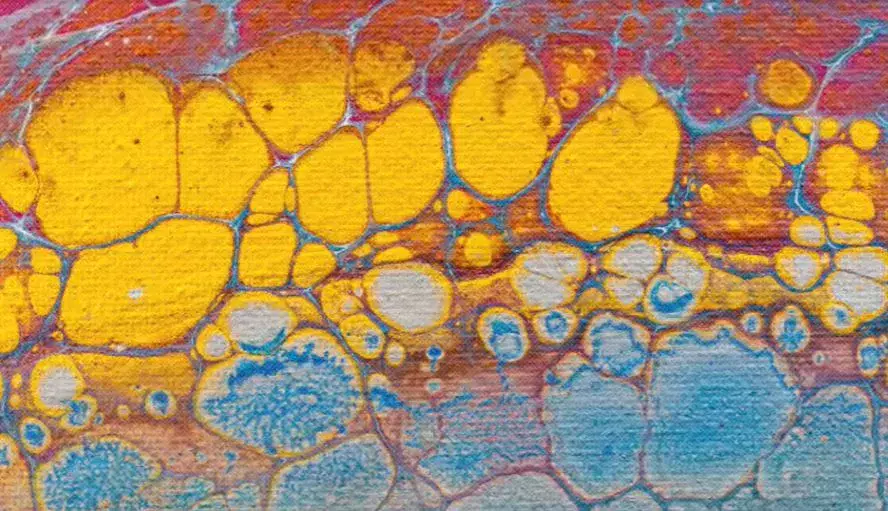Omics and high-throughput
On this page we have collected core facilities and resources within proteomics and genomics and related techniques located at our two main campuses. Several of the listed core facilities are also a part of the national research facility SciLifeLab.

Bioinformatics and Expression Analysis Core Facility
The Bioinformatics and Expression Analysis Core Facility (BEA) is a national genomic service facility located at the the Department of Medicine (MedH) at KI South Campus Flemingsberg. BEA provides a large repertoire of genomic technologies to ongoing research projects. This includes access to technologies and services for massively parallel sequencing and genomic analysis based on platforms for microarrays, sequencing and qPCR. The services of BEA are extensive and ranges from experimental planning to bioinformatic support and includes services for RNA and DNA purification, nucleic acid quality control and different downstream genomic assays.
Chemical Biology Consortium Sweden
Chemical Biology Consortium Sweden (CBCS) is a national research infrastructure placed at SciLifeLab not far from the KI Campus Solna. CBCS offers an extensive portfolio of services: from computational and organic chemistry to phenotypic small molecule screens in cells and model organisms, cell painting and functional precision medicine. The facility has a state-of-the-art compound collection with more than 300,000 molecules for screening, as well as biosafety level 2 and 3 laboratories, fragment-based screening with NMR, and automated patch clamp profiling/screening.
Chemical Proteomics
Chemical Proteomics is a national facility that offers state-of-the art mass spectrometry-based proteomics support to the Swedish research community. The facility also offers expert support in experimental planning, MS-analysis and data analysis related to proteogenomics and chemical proteomics. The activities are shared between two sites in Stockholm: one at SciLifeLab and one at Karolinska Institutet. The chemical proteomics facility is also a node in Swedish National Mass Spectrometry Facility, BioMS.
Chemical Proteomics Core Facility
The Chemical Proteomics Core Facility (ChemProt) is located at Biomedicum, Campus Solna, and specializes in supporting target identification and validation, keys and bottlenecks of drug discovery and development. It is also connected to the Chemical Proteomics and Proteogenomics node at SciLifeLab.
Clinical Genomics
The Clinical Genomics Stockholm unit is a research infrastructure at SciLifeLab for large-scale, genomics-based analyses using next generation sequencing technologies. The unit assists in translational research projects, in the translation of genomics-based tools to routine clinical care and also aims to improve the capability for national microbial surveillance and for pandemic preparedness. All projects are carried out in close collaboration with the Swedish healthcare system and medical expertise provided by the clinical diagnostic laboratories and patients’ managing physicians.
Clinical Proteomics Mass Spectrometry Core Facility
Clinical Proteomics Mass Spectrometry Core Facility offers you an opportunity to analyze the proteome composition of biological samples. The facility provides expertise and services in a wide range of MS-based proteomics methods with focus on in-depth quantitative proteomics and clinical proteomics. The facility also offers expert support in experimental design as well as downstream data analysis to ensure a high quality service.
The team behind this facility strive to develop and implement cutting edge research methods in our services. This is exemplified by the level of data produced by the HiRIEF method used for in-depth proteomics, and by our continuous development of bioinformatics methods for optimal use of the generated data. The financial support for the facility is provided by Region Stockholm (the county council).
CRISPR Functional Genomics
The CRISPR Functional Genomics facility (CFG) offers a wide array of CRISPR applications, ranging from precision genome engineering in cell lines to massively parallel genetic perturbations for genetic screening and unbiased discovery. As a SciLifeLab national infrastructure unit, CFG strives to provide services at the cutting edge of technological innovation. Please note that the Karolinska Genome Engineering Facility (KGE) is now a part of CFG.
KIGene – Genetic Analysis and Spatial Biology
KIGene – Genetic Analysis and Spatial Biology offers genetic analyses, covering Sanger DNA sequencing with fast turn-around time, gene expression analysis and analysis of genetic variations including SNPs, microsatellite markers and insertion/deletion polymorphisms, and epigenetic analyses. The spatial biology section of the facility provides highly multiplexed, up to whole transcriptome, spatial profiling of RNA or protein on tissue sections.
KI Small Molecule Mass Spectrometry Core Facility
The KI Small Molecule Mass Spectrometry Core Facility (KI-SMMS) provides analytical services using best available mass spectrometry methods with a focus on quantitative measurements of small molecules. The facility assists in designing experiments, including a broad range of samples preparation methods, in combination with generation of high-quality mass spectrometric data as well as data analysis and interpretation.
Mutation Analysis Facility
The purpose and mission of the Mutation Analysis Facility (MAF) is to help scientists at Karolinska Institutet, its associated hospitals, and other academic institutions to perform genetic, epigenetic and genetic-epidemiological research in order to identify and assess genetic factors involved in different disease processes. The facility offers techniques for targeted DNA methylation, genome-wide DNA methylation, genome-wide genotyping, targeted SNP genotyping as well as genome-wide expression analysis.
Protein Science Core Facility
The Protein Science Core Facility (PSF) provide users with protein production, biophysical protein characterization and Macromolecular X-ray crystallography (MX) services available at the Department of Medical Biochemistry and Biophysics (MBB). PSF is part of distributed national research infrastructure called Protein Production Sweden (PPS).
Seahorse XFe96 Analyser
The Seahorse XFe96 Analyser, located in Biomedicum, KI Campus Solna, can be used for a variety of applications, such as characterising disease models, identifyting drug targets, validating target effects on cellular function, and determining drug safety.
Single Cell Core Facility Flemingsberg
The main goal of the Single Cell Core Facility Flemingsberg (SICOF) is to provide expertise and experimental support on single cell technologies for researchers at Karolinska Institutet — starting with advice on experimental setup and selection of available technology leading all the way up to delivery of clustered single cell data in a format that can be explored by researchers without the need for specialized bioinformatics expertise. The core facility is situated at our South campus area in Flemingsberg.
Single Cell Proteomics Core Facility
The Single Cell Proteomics Core Facility provides services using best available mass spectrometry-based proteomics techniques and methods with focus on quantitative proteomics, including single cell proteomics. We help designing experiments, providing a broad range of efficient samples preparation methods, high quality mass spectrometric data as well as data analysis and interpretation.
How to book a core facility
iLab booking system for core facilities
Already know what you are looking for? Login to our booking system in iLab and make a reservation. You need a digital SWAM-ID from a Swedish university (the KI-ID at Karolinska Institutet) to login. It is also possible to register for an account as an external user.
Please note that all core facilities at KI are not available in iLab. Visit their webpages to find out.
Single point of contact
Didn't you find what you were looking for or are you unsure about which core facility to contact about a specific tool or analytic method? The KI SPOC for research infrastructure can be of assistance.
Please note that researchers within KI and Region Stockholm have priority.
More resources in this area
 Photo: The human protein atlas
Photo: The human protein atlasThe Human Protein Atlas
A Swedish-based program with the aim to map all the human proteins in cells, tissues and organs by using an integration of various omics technologies.
 Photo: Karolinska KI/K COVID-19 Immune Atlas
Photo: Karolinska KI/K COVID-19 Immune AtlasThe COVID-19 Immune Atlas
The KI/K COVID-19 Immune Atlas provides a comprehensive overview of the human immune response in COVID-19 disease, freely available for scientists in academia and industry.
 Photo: Single Cell Atlas
Photo: Single Cell AtlasThe Single Cell Atlas (SCA)
A single-cell multi-omics atlas presenting comprehensive overview of healthy human tissues, accompanied by a series of bioinformatics tools. Several KI researchers are involved in this project.
